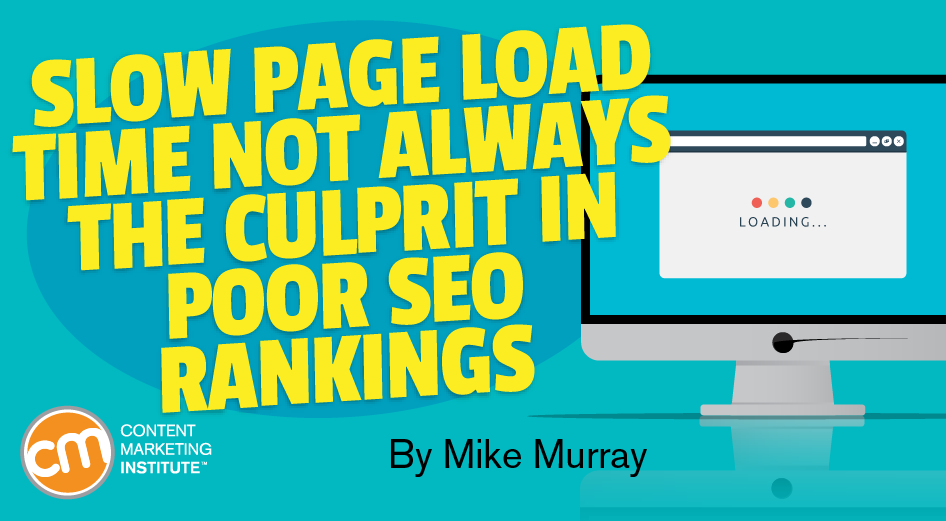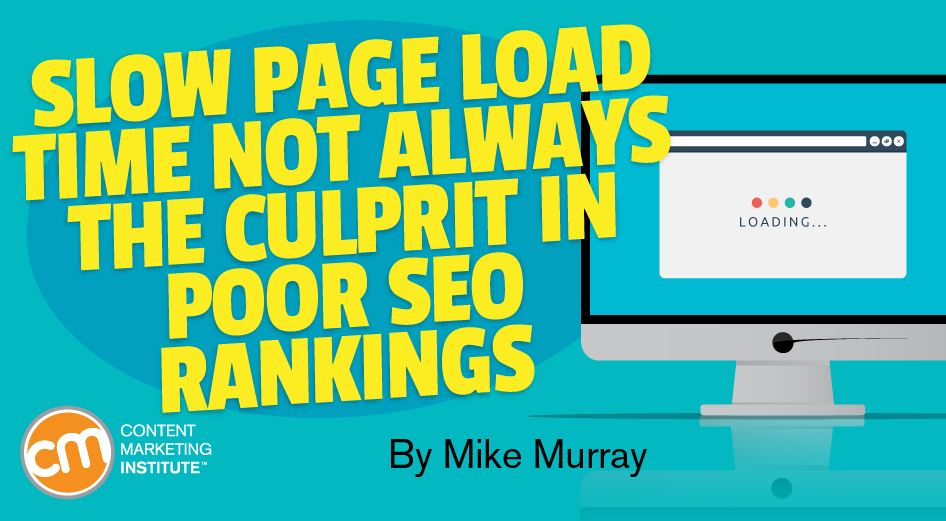If you’re concerned about your Google rankings and website page load speed, you should keep them in perspective. Website developers and marketers buzz about page load time, especially because Google announced beginning this past July that speed is a keyword ranking factor for some mobile versions of websites. Page load speed is only one ranking factor; everything can’t be important. For SEO purposes, I looked at four Fortune 500 companies and analyzed keywords, search volume, page authority (with Moz), and rankings with SEMrush. As you can see, the companies often don’t do too well with page load speed grades, as noted in the mobile and desktop columns. 1 ranking for “car seat” with 165,000 monthly searches? Not bad: https://www.walmart.com/cp/car-seats/91365 Its SEO page title is short and to the point with the plural version:

If you’re concerned about your Google rankings and website page load speed, you should keep them in perspective.
Website developers and marketers buzz about page load time, especially because Google announced beginning this past July that speed is a keyword ranking factor for some mobile versions of websites.
In a Google Webmaster Central Blog post, Zhiheng Wang and Doantam Phan write:
The ‘Speed Update,’ as we’re calling it, will only affect pages that deliver the slowest experience to users and will only affect a small percentage of queries. It applies the same standard to all pages, regardless of the technology used to build the page. The intent of the search query is still a very strong signal, so a slow page may still rank highly if it has great, relevant content.
OK, that was hardly a surprise and clearly Google cares about websites that load fast even on desktops. After all, representatives talk about it all the time. Google even developed tools devoted to both desktop and mobile performance, including PageSpeed Insights.
You could have page load issues, but that deficiency might not be to blame for your Google keyword rankings.
Here are three realities:
- Fortune 500 companies sometimes get failing grades for page load speed and enjoy top rankings. You probably do too.
- Page load speed is only one ranking factor; everything can’t be important. Backlinks and content still rule.
- If you’re vigilant about website load time, you’re still making good use of time. Fast-loading websites impress visitors.
For SEO purposes, I looked at four Fortune 500 companies and analyzed keywords, search volume, page authority (with Moz), and rankings with SEMrush. For top-ranking keywords, I used the popular GTmetrix tool that references Google data.

As you can see, the companies often don’t do too well with page load speed grades, as noted in the mobile and desktop columns. But Google ranks their sites high for key phrases.
How does Walmart pull off a No. 1 ranking for “car seat” with 165,000 monthly searches?
Does “car” or “seat” appear in the domain name? No. What about the page URL? Not bad: https://www.walmart.com/cp/car-seats/91365
Its SEO page title is short and to the point with the plural version: <title>Car Seats – Walmart.com</title>
For the most part, parts of the page content seem relevant:



COMMENTS